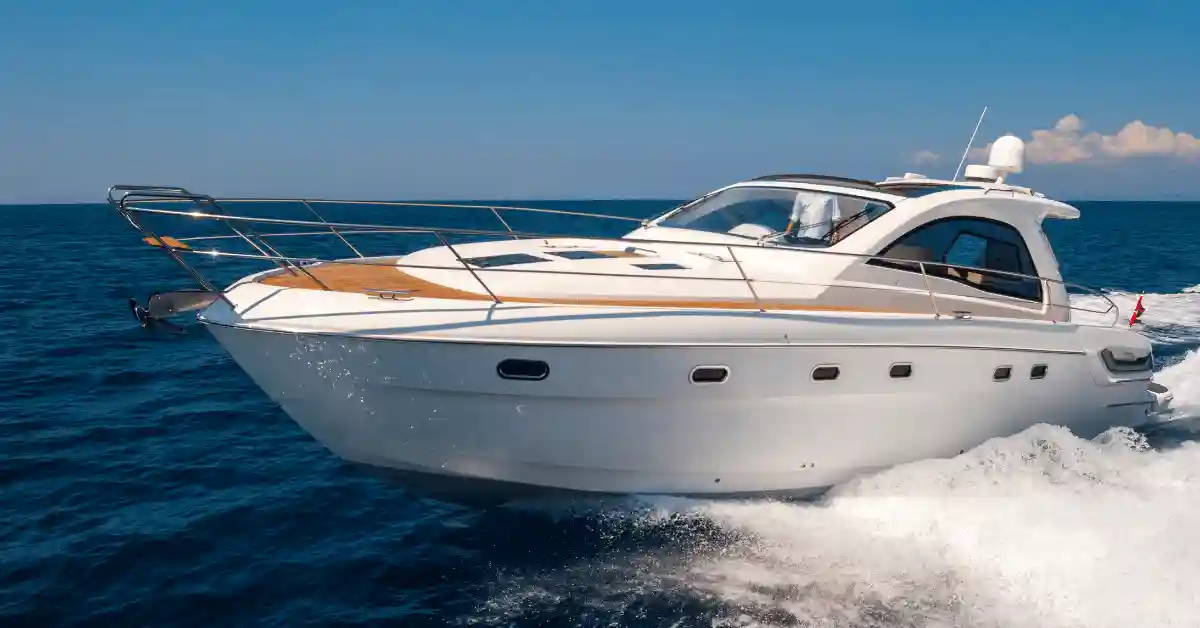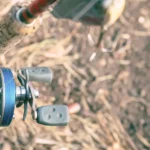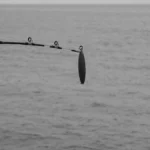Can you use a trolling motor in saltwater? If you like spending time on the water fishing or boating, you may have wondered this more than once. When used in freshwater, trolling engines are highly regarded for their effectiveness and silence. The purpose of this quick read is to explore the intriguing world of searching motors and determine whether they are up to the task of saltwater fishing. So, let’s tackle the question head-on: Can you use a trolling engine in salt water?
Using a Freshwater Trolling Motor in Saltwater
The answer is yes. A trolling engine designed for freshwater may be used in saltwater. These motors perform well in saltwater as well as fresh. It’s essential to remember that although they will function in salt water, their lifespan and efficiency may suffer.
Using a trolling engine designed for freshwater in saltwater poses the most significant risk of corrosion. Because of the corrosive nature of saltwater, prolonged exposure might cause the engine to corrode and fail.
Protecting Your Freshwater Trolling Motor from Saltwater Corrosion
If you want to use your freshwater trolling engine in salt water, you must take extra care to prevent the metal parts from corroding. Here are some tried and true methods for protecting the engine’s finish:
Oil or Grease Coating
Applying oil or grease is one of the easiest and most efficient methods to preserve your trolling engine. These chemicals form a protective barrier around the metal, blocking saltwater’s ability to erode it. Products like Lucas Oil, White Lithium Grease, and Valvoline Motor Oil suit this task. Use many coats of your material of choice to cover the metal pieces completely.
Corrosion Block Spray
Corrosion barrier sprays used to cover metal on freshwater trolling engines are another solution. To entirely prevent metal against seawater corrosion, spray a liberal quantity over the area. Always use gloves while working on the machine to avoid getting any material on your hands.
Understanding the Difference: Freshwater vs. Saltwater Trolling Motors
Both freshwater and saltwater trolling engines are powered by an outboard motor, which may be used in both environments.
Hardware
Metal components of freshwater trolling engines are usually made of primary alloys, whereas saltwater trolling motors are built from corrosion-resistant metals like stainless steel. Motors designed to operate in saltwater are constructed from different materials.
Paint Coating
The metal components of saltwater trolling motors are painted with thicker and more corrosion-resistant coatings than those of freshwater trolling motors. This extra shield helps defend against the corrosive effects of seawater.
Electrical Insulation
While the electrical components of both kinds of motors are well-insulated, the saltwater trolling motors’ insulation is more thorough. This additional insulation safeguards the motor’s electrical details from the corrosive effects of moisture.
Using a Saltwater Trolling Motor in Freshwater
A trolling motor designed for saltwater may be used in freshwater with no problems. The fundamental difference is in corrosion resistance. All metallic components in a saltwater motor are coated with protective coatings to prevent corrosion. However, corrosion is not an issue in freshwater since no salt is present. If you need to, you may use your saltwater trolling motor in freshwater without worrying about cleaning it.
Importance of Rinsing a Freshwater Motor After Using It in Saltwater
Those who choose to utilize a trolling motor designed for freshwater in saltwater must take special precautions to ensure the motor’s survival. After using the engine in saltwater, giving it a quick rinse is essential. The machine may be cleaned of any salt buildup that may have occurred while fishing by rinsing it with fresh water. These deposits may cause corrosion in the motor and shorten its useful life if not removed. If you want to ensure your engine lasts as long as possible and performs at its best, carrying a gallon of fresh water with you on your fishing excursion is a good idea.
The durability of Freshwater Motors in Saltwater
A trolling motor designed for freshwater may be used in saltwater, but its lifetime may be shorter than in freshwater. A freshwater trolling motor, if properly maintained, has a seven-year lifespan in saltwater. The aforementioned preventative steps, including post-use maintenance such as oiling or greasing and cleaning, will allow you to get the most usage out of your freshwater trolling motor and extend its lifespan.
How to clean a freshwater trolling motor after using it in saltwater
It is crucial to clean a freshwater trolling motor thoroughly after operating it in saltwater since salt deposits and rust might damage the engine. Here is a detailed tutorial on how to clean your trolling motor:
- Rinse with Freshwater: After each use in saltwater, remove the trolling motor and give it a good rinsing in clean water. Get a hose and spray off the motor’s housing, propeller, and other bare metal components to remove saltwater residue. Ensure that you explore every corner and cranny.
- Remove Salt Deposits: If the salt is very tenacious, you may use a soft brush or sponge to scrape the metal surfaces if washing doesn’t do the trick. Make sure you don’t harm the motor’s inside in any way.
- Clean the Propeller: Salt deposits are especially harmful to the propeller. The propeller should be removed from the engine and washed with clean water and a soft, bristled brush. Wash the blades and hub thoroughly to get rid of any salt buildup.
- Wipe Down Electrical Components: Use a moist towel to wipe off any connections or terminals that came into contact with seawater to remove any salt residue. To avoid potential harm to electrical components, avoid getting water on them.
- Apply Corrosion Inhibitor or Lubricant: Once the trolling motor has been cleaned and dried, any metal components should be treated with a marine-grade corrosion inhibitor or lubricant. A barrier between the salt and the metal will assist in avoiding corrosion.
- Allow to Dry: Before putting the trolling motor away, ensure it is scorched. Dry all parts thoroughly to prevent rusting or other corrosion problems.
- Store in a Dry Place: Keep the trolling motor out of direct sunshine and in a dry, well-ventilated place. The salt and moisture will be deterred if you store it somewhere dry while not in use.
- Regular Maintenance: Freshwater trolling motors need frequent maintenance, particularly after exposure to saltwater. Check for rust or other damage and fix it as soon as you see it.
If you’ve used your freshwater trolling motor in saltwater, here’s how to clean it and prevent damage and corrosion. Trolling engines last longer with regular maintenance.
How Long Will a Freshwater Motor Last in Saltwater?
The time a freshwater engine will last in saltwater is variable and dependent on several factors. However, a freshwater motor operated in saltwater without sufficient maintenance is predicted to incur substantial corrosion and wear, significantly decreasing its operating life. That might take as little as a few months or as long as a year. Regular cleaning, washing with fresh water, and corrosion prevention methods are necessary to extend the life of a motor used in saltwater. Purchasing a marine or saltwater motor for more extended usage in saltwater is recommended.
FAQs
Can you use a regular Minn Kota trolling motor in saltwater?
Trolling motors not intended for use in saltwater will not operate as well or last as long as marine-grade models.
Can all trolling motors use lithium batteries?
Unfortunately, not all trolling motors are compatible with lithium batteries; those made for lead-acid batteries are incompatible with lithium.
Can a trolling motor push a boat?
Depending on the size and weight of the boat, a trolling motor may be able to propel it.
How fast can you troll in salt water?
Depending on the weather and the species being pursued, the optimal trolling speed in saltwater is between 2 and 4 knots.
Are trolling motors waterproof?
While many trolling motors are watertight, the degree of protection varies by design.
Can You Use a Trolling Motor in Saltwater? (Conclusion)
As a result, can you use a trolling motor in saltwater? It is answered with a resounding “Yes,” Some trolling motors are built to survive the corrosive conditions of salt water, while others are not. You may get dependable performance in freshwater and saltwater if you get the correct trolling motor and keep it in good condition. Remember that a trolling motor, with the proper preparation and maintenance, may be a trustworthy friend on the open sea the next time you go fishing. Do Trolling Motors Work in Saltwater? You can do that, of course!











